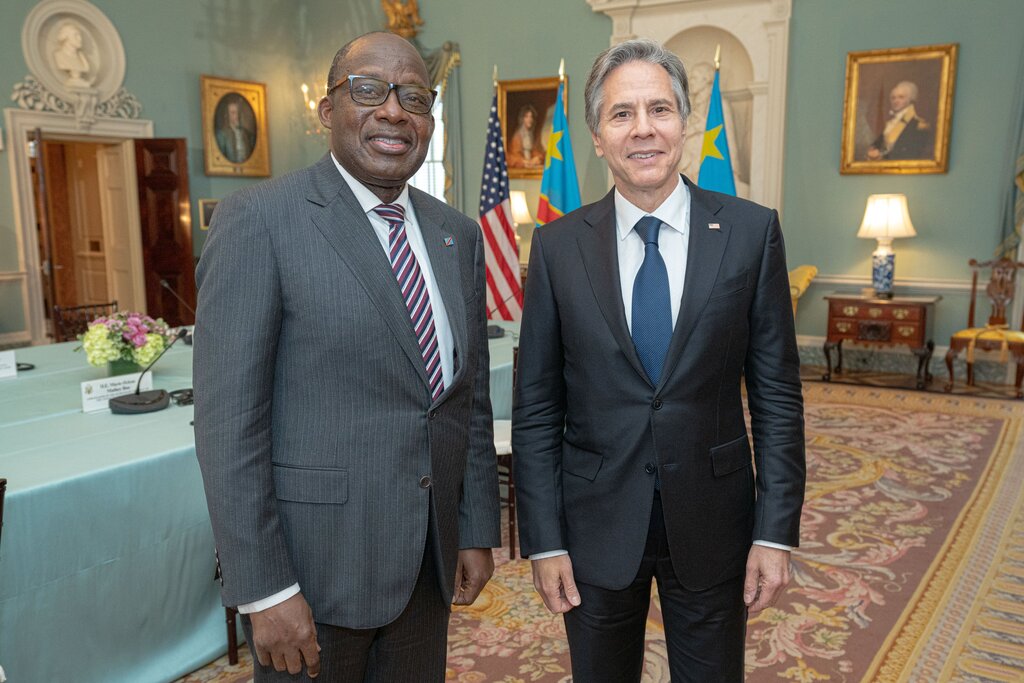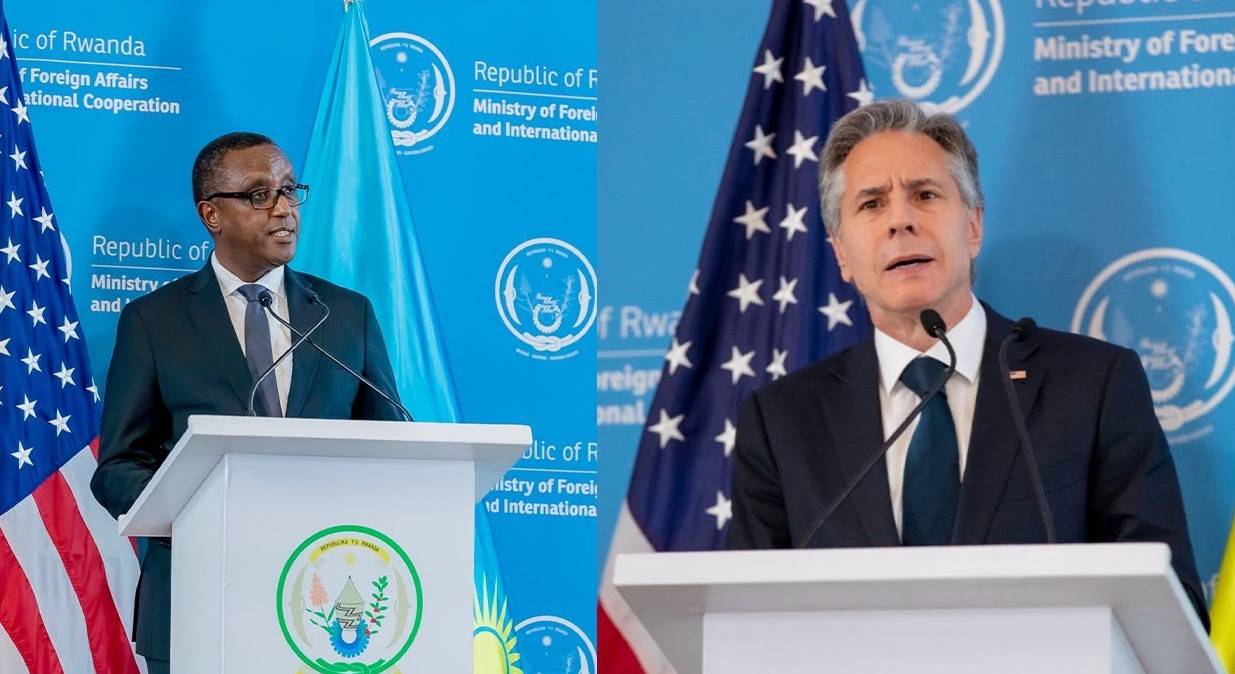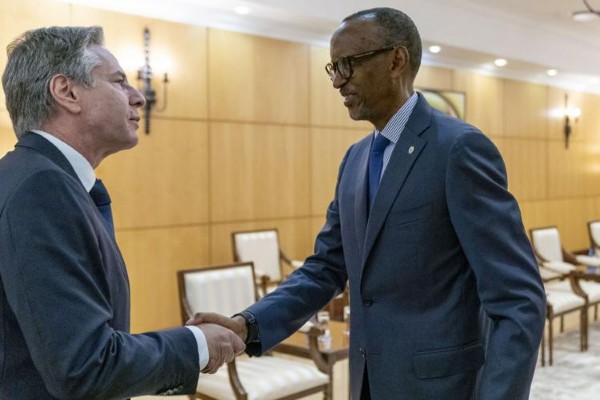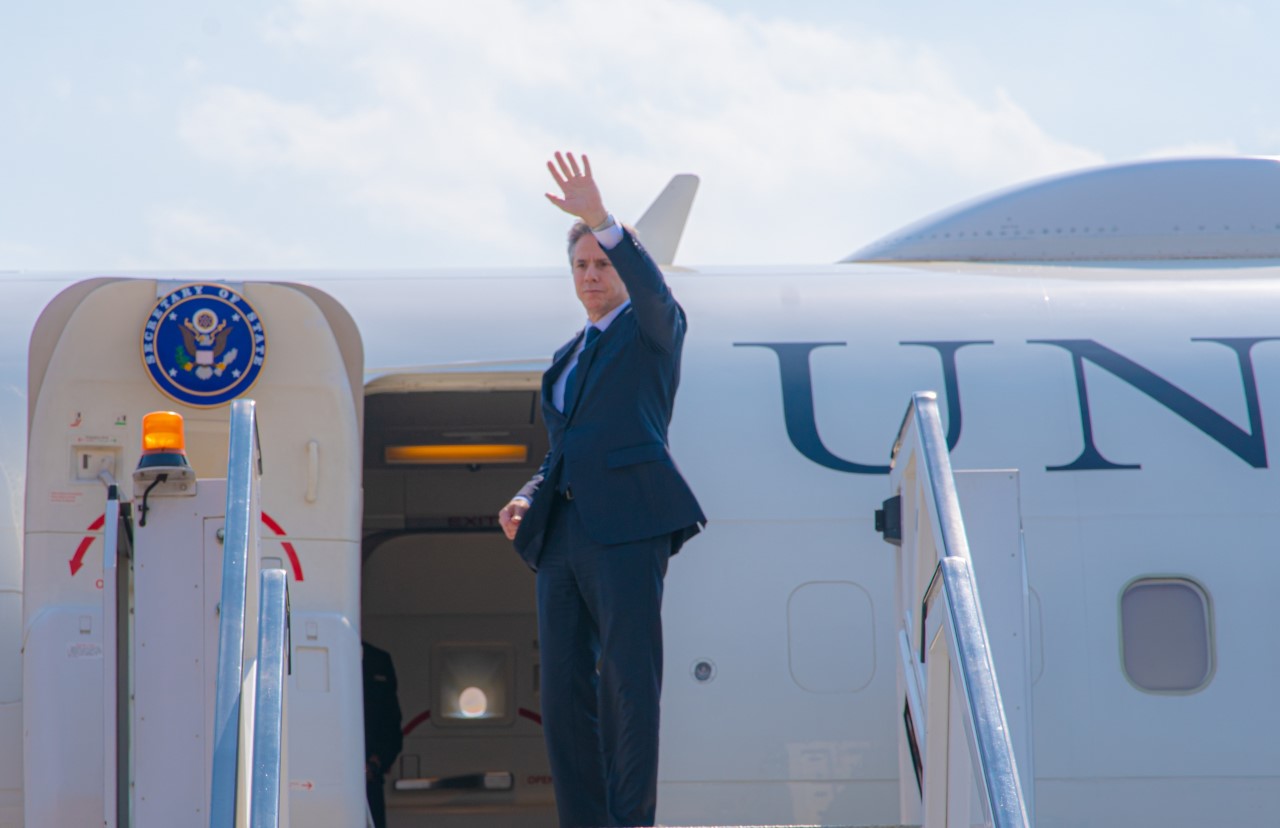Regional
Did Blinken’s visit meet DRC’s expectations?
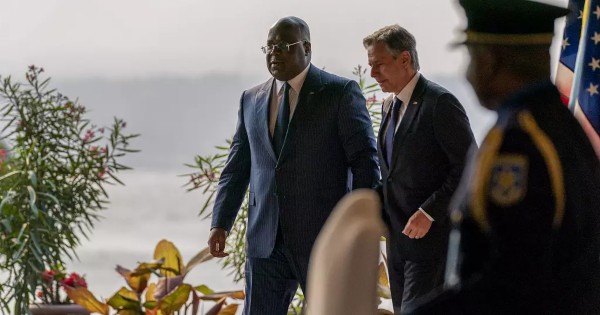
Prior
to his visit to Rwanda, from August 10-11, US Secretary of State Antony
Blinken, was in the Democratic Republic of Congo (DRC) for a two-day visit as
well.
The
DRC government had a long wish list for the US diplomat, which included holding
Rwandan leaders accountable for their alleged support to M23 rebels.
The
allegation was backed by an unpublished but leaked UN group of expert report,
claiming to have solid evidence of the presence of, and military operations
conducted by the Rwandan army in Rutshuru territory, North Kivu Province, between
November 2021 and July 2022. This was brought up by the Congolese Foreign Affairs
Minister, Christophe Lutundula, during a joint press conference with Blinken.
Kinshasa was pushing for the report to be published in its entirety so as to
pin Rwanda.
All
these claims were raised with Blinken despite all the ongoing regional efforts
to quell the flare-up of violence across eastern DRC. The Nairobi and Luanda peace
initiatives gave a clear roadmap of how peace can be attained in the region,
including an immediate defeat of the FDLR militia and its splinter groups – CNRD,
FLN, RUD-Urunana, and FPPH-Abajyarugamba. The latter genocidal militia are the
major causes of insecurity in DRC and are the causers of tensions between
Rwanda and DRC.
However,
what the DRC has failed to acknowledge is the fact that the terrorist genocidaires,
FDLR, responsible for the 1994 genocide against the Tutsi in Rwanda, are being
integrated into the DRC army, to fight its war against M23.
The path
to peace provided by the Nairobi and Luanda initiatives encompasses fighting
the hate speech in DRC which increased in the recent past targeting Rwanda,
Congolese Tutsi and Rwandophones. Fueled by genocide ideology, the hate speech
in DRC is not only used by security organs and ordinary citizens. It has gone
as far as being used for political campaigns by government officials, as a way
of gaining popularity, something the DRC has failed to address for the past
three decades.
For
years, the DRC has never failed to find new accusations against Rwanda. A few
years ago, some Congolese spoilers accused Kigali of seeking to occupy its resource-rich
east. Blame shifting without resolving issues at home is a game DRC has
mastered.
Kinshasa
always seeks international support for its struggles with security issues in
the eastern part of the country, which speaks volumes about its lack of
confidence to own and solve its own problems. Worse still, the Congolese always
look at Western powers as their saviour.
Kinshasa
did not get its victory after the departure of the US Secretary of State from
Rwanda, and the region. The DRC government had expected the US to ‘punish’
Rwanda, based on the allegation of Kigali’s support of the M23. Kinshasa
expected the Washington to impose visa restrictions, and economic sanctions,
among others, on Kigali. Nothing happened. For DRC, this should come as a
wakeup call. Congolese authorities need to address their internal governance crisis,
without blaming their glaring failures on others or expecting the US to come to
their rescue.


